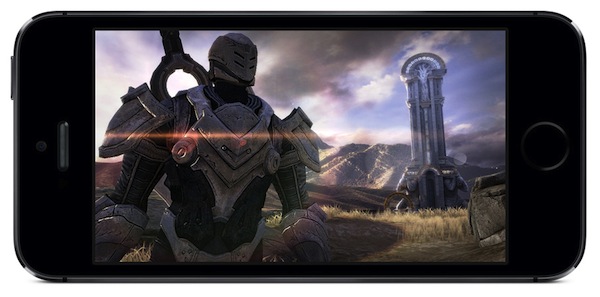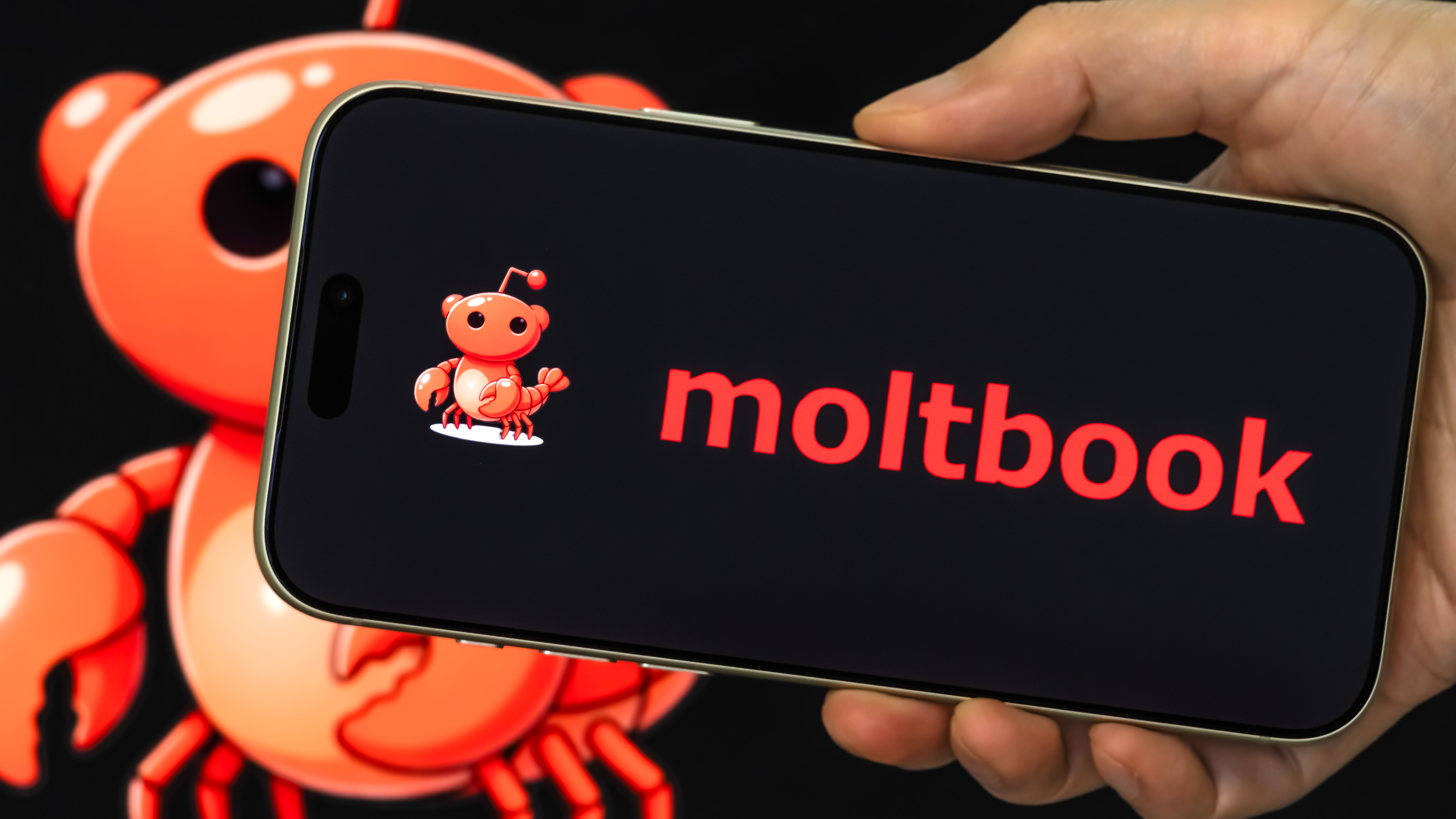Why the iPhone 5S Won't Revolutionize Mobile Gaming
Despite its powerful new chips and OS, the iPhone 5S may not do much to advance mobile gaming.

Here at Tom’s Guide our expert editors are committed to bringing you the best news, reviews and guides to help you stay informed and ahead of the curve!
You are now subscribed
Your newsletter sign-up was successful
Want to add more newsletters?

Daily (Mon-Sun)
Tom's Guide Daily
Sign up to get the latest updates on all of your favorite content! From cutting-edge tech news and the hottest streaming buzz to unbeatable deals on the best products and in-depth reviews, we’ve got you covered.

Weekly on Thursday
Tom's AI Guide
Be AI savvy with your weekly newsletter summing up all the biggest AI news you need to know. Plus, analysis from our AI editor and tips on how to use the latest AI tools!

Weekly on Friday
Tom's iGuide
Unlock the vast world of Apple news straight to your inbox. With coverage on everything from exciting product launches to essential software updates, this is your go-to source for the latest updates on all the best Apple content.

Weekly on Monday
Tom's Streaming Guide
Our weekly newsletter is expertly crafted to immerse you in the world of streaming. Stay updated on the latest releases and our top recommendations across your favorite streaming platforms.
Join the club
Get full access to premium articles, exclusive features and a growing list of member rewards.

Apple's upcoming iPhone 5S will pack a lot of power under the hood, but that doesn't necessarily mean that it will drive huge strides in the mobile gaming market. Mobile gaming is changing, but the iPhone 5S may not do much to advance the process.
iPhone 5S Gaming
The iPhone 5S is the first smartphone to sport a 64-bit processor chip, the A7, which will allow it to run programs much faster and with much higher graphical fidelity. Without getting into too many specifics, the iPhone 5S' ability to run a 64-bit operating system instead of the traditional 32-bit iOS will allow developers to create more complex software that can perform many more simultaneous processes.
Although the A7 chip will allow game developers to create more sophisticated titles, there's little to indicate that they will actually do so.
MORE: 10 Best Mobile Games for Hardcore Gamers
"[The 5S] doesn't mean too much in the way of the advancement of mobile gaming," said Scott Reyburn, a mobile-gaming analyst. "Most games that are successful on mobile are still free-to-play, or mostly 2D, or not using too much graphical horsepower or too much memory."
When Apple demonstrated the A7's potential gaming applications, it trotted out "Infinity Blade 3." In this high-fantasy action game, the player swings a sword at a variety of dangerous foes with touchpad swipes.
The game comes from veteran developer Epic Games, and looks exceptional. According to the developer, "Infinity Blade 3" has four times the resolution of its predecessors. From its menacing knights to its fire-breathing dragons, the game is out to impress, but in all probability, it's not indicative of what most iOS games will look like.
Get instant access to breaking news, the hottest reviews, great deals and helpful tips.
"In the grand scheme of things, a game like 'Infinity Blade' is not the norm," Reyburn told Tom's Guide. "It's sort of the 'Halo' for Apple. It's their showpiece title for their handset." While plenty of people will buy the game, creating a game like "Infinity Blade 3" is too expensive for most mobile developers, and too large and involved for most iPhone owners, said Reyburn.
The iPhone 5S is also unlikely to deliver anything that mobile gamers haven't seen before. Scott Steinberg, strategic innovation consultant for TechSavvy, maintains that even though the A7 chip will allow for prettier, more complex games, it won't bring any new genres or gameplay mechanics to the table.
"We've [already] got first-person shooters; we've got 3D role-playing games; we've got adventures," he said. "You get more of what you've got for the most part, only you get it in a newer, shinier [product]."
MORE: Top 15 Android Shooting Games
In theory, it's much easier for an indie development team to hop in and make a cheap mobile game, but in actuality, it's quite tough — and the A7 will only make it tougher.
"With nearly 1 billion apps out there and thousands of new games, you can find high-quality products that people are more than willing to play," Steinberg said. "The real challenge is obscurity and visibility. Brighter, shinier games are likely to come from larger studios and bigger-name publishers. They tend to overshadow independent works even further."
From smartphones to consoles
The iPhone 5S uses a 64-bit architecture, which makes programming a game for it at least somewhat similar to programming a game for a console or PC. Even so, the iPhone 5S is not likely to have many crossover titles with the Xbox or PlayStation consoles — at least not yet.
"I think most console developers have already figured out that porting an existing game from console to mobile pretty much doesn't work," said Reyburn. "It's a completely different form factor, and the controls do not translate at all." A game you hold in your hands and control with a touch screen is usually very different from one you watch on a TV and control with a keyboard or controller.
Even if console and PC developers wanted to jump on the mobile 64-bit bandwagon, they might not have much incentive. Currently, the iPhone 5S is the only mainstream 64-bit mobile device on the market. Mobile games are often cheap, or free-to-play and supported by microtransactions, which means that targeting the widest audience possible is the only way to turn a profit.
Moreover, console gamers are not necessarily looking for mobile alternatives. "There's some crossover — not as large as many would think," Steinberg said. "Play patterns differ. Mobile games are a complement to traditional gameplay devices. They're not replacing them."
Core gamers — those who would be most interested in the kind of deep gameplay and ambitious graphics that an A7 chip can deliver — are still going to go for an Xbox One or a PS4 when the time comes, Steinberg said.
One place where the iPhone 5s will continue to eat away at traditional video games, however, is in the handheld space. Systems like the Nintendo 3DS and PlayStation Vita have suffered in comparison to iOS and Android devices, and that's not likely to change.
"If I have [a smartphone] that already does 67,000 different things, do I really need to go out and buy a stand-alone device?" Steinberg pointed out. "The iPhone 5S is not going toe-to-toe with these systems, but does it really need to?"
Ultimately, although the iPhone 5S will have the capability to change mobile gaming in profound ways, it will probably not do so. When push comes to shove, said Reyburn, most iOS users don't want to invest the time, money or storage space in games like "Infinity Blade 3."
"People are moving away from those superlarge games and playing the smaller, more optimized, less-than-100-MB, free-to-play games," he said. "It's not going to change too much for now."
Follow Marshall Honorof @marshallhonorof. Follow us @tomsguide, on Facebook and on Google+.

Marshall Honorof was a senior editor for Tom's Guide, overseeing the site's coverage of gaming hardware and software. He comes from a science writing background, having studied paleomammalogy, biological anthropology, and the history of science and technology. After hours, you can find him practicing taekwondo or doing deep dives on classic sci-fi.
-
thesuperguy This is why I don't buy a phone to play games on it. I have a PC for that. I buy a phone for the sake of it being a PHONE.Reply -
_Bruce_ "the iPhone 5S' ability to run a 64-bit operating system instead of the traditional 32-bit iOS will allow developers to create more complex software that can perform many more simultaneous processes."Reply
This quote makes no sense at all to me. The only possible reason for this is a new 64 bit API will let them get around possible limitations on the existing iOS API. Even still 'more complex'; 'many more simultaneous processes'? Really? -
danbob999 "The iPhone 5S is the first smartphone to sport a 64-bit processor chip, the A7, which will allow it to run programs much faster and with much higher graphical fidelity. Without getting into too many specifics, the iPhone 5S' ability to run a 64-bit operating system instead of the traditional 32-bit iOS will allow developers to create more complex software that can perform many more simultaneous processes."Reply
Is this really a tech site? This quote is 100% BS.
More cores allow more simultaneous processes. Not more bits. Also the graphical fidelity has nothing to do with the number of bits in the CPU. It mostly depends on the GPU. Games won't benefit from being 64 bit on the iPhone 5S. -
house70 "Why the iPhone 5S Won't Revolutionize Mobile Gaming"Reply
Ah, I know this one, it's easy.
Because it can't hold a candle to the Shield (and I'm not even a Tegra fanboi). -
acadia11 Wait, wait, just because it's 64-bit does not mean it by default can run programs faster.Reply
What part of the processor is 64-bit has a lot to do with this, as do many many many other factors, ie like 64-bit operations and optimization within the OS itself.
-
jl0329 Trust me when I say it will revolutionize mobile gaming.Reply
Trust me when I say it won't revolutionize mobile gaming.
Now, who do you trust? -
michalt Let's see... if you release a 64 bit game your ipa size will increase, possibly pushing you over the 50mb limit for over-the-air distribution... you'll get a minor perf boost because the registers will be twice as big... and then you'll be able to directly access the >4gb memory on the phone! Wait... it comes with less than 4gb of memory? Never mind then.Reply -
acadia11 Wait, wait, just because it's 64-bit does not mean it by default can run programs faster.Reply
What part of the processor is 64-bit has a lot to do with this, as do many many many other factors, ie like 64-bit operations and optimization within the OS itself.
 Club Benefits
Club Benefits





